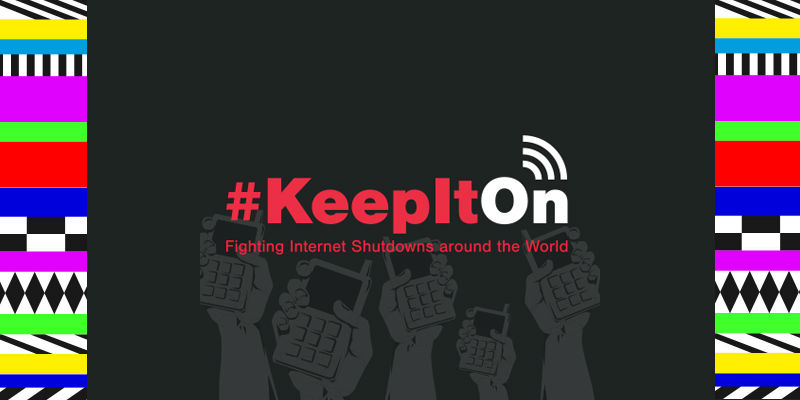During the #FASTAfrica Action week (May 1-7) groups across the continent are drawing attention to Internet rights and access issues.
Internet shutdowns have become an early warning mechanism for human rights violations in Africa and around the world. Even worse, we’re seeing shutdowns ordered by governments at crucial moments in the democratic process during elections, when they shut off mobile internet, communications platforms, and mobile banking services. Access Now have recorded at least 15 shutdowns in 2015, and it looks like that record will be broken in 2016.
What is a shutdown?
An internet shutdown is the intentional disruption of internet or electronic communications, rendering them inaccessible or effectively unusable, for a specific population or within a location, often to exert control over the flow of information. Following this definition, Access Now has recorded shutdowns in Chad, Uganda, Ethiopia, India, and Pakistan this year.
Each shutdown is unique, but they all harm people, violating human rights and often damaging the local economy. In Chad, the government blocked internet services for at least 48 hours during its presidential election, demonstrating that there is a growing trend of governments to order shutdowns during voting. (President Idriss Deby has been in office since 1990, after taking power in a military coup).
The Chad shutdown followed a similar shutdown in Uganda during its presidential election in February, in which services were shut off for nearly four days. Rough estimates of the loss of mobile money transactions alone amount to $25 million per day, and some residents who relied on the internet to pay their electricity bills found themselves without power. The opposition candidate was also confined to house arrest during the resulting media blackout.
In the region of Oromia in Ethiopia, the government blocked key internet services including Twitter and WhatsApp for more than a month. There, protests flared after more than 200 demonstrators were killed.
Beyond Africa
But the problem extends beyond Africa. People in India and Pakistan have unfortunately become frequent victims of shutdowns, which are not only regularly imposed, but sometimes scheduled well in advance despite the fact that they violate freedom of expression and disrupt local businesses. India has blocked mobile internet in both Gujarat and Kashmir.
In Kashmir, the owner of a juice stand told the Kashmir Reader, a local news outlet, “My sales have subsequently gone down by 30 to 40% from the last few days as most of my orders would come via Whatsapp, emails, and Facebook from here as well as from other districts of the valley. So, very few orders have come because of no internet connectivity.”
The total cost of that day-long shutdown to banks was approximately $22.6 million, and that does not include losses to businesses such as the owner of the juice stand or to the wider economy.
In Pakistan, the government has carried out shutdowns for a broad array of purposes and rationales, such as for religious holidays or to ostensibly provide security when public officials are moving through the country. These instances are being tracked by our partner Bytes for All on its Killswitch Timeline.
Regardless of the rationale, these shutdowns violate our rights and must be stopped. They cut off access to information, damage the economy, prevent journalists from reporting the truth, block emergency services, and can be used to obscure other human rights violations. And when governments order these shutdowns, telecommunications companies usually comply without pushing back.
Extending internet access is vital for people to enter the digital age, but if they sign onto an internet that is regularly shut down that connectivity will be significantly devalued.
What you can do
If you want to help us continue to fight these shutdowns, we encourage you to visit our newly updated resource page. There, we’ve uploaded a new visuals kit with #KeepItOn graphics that you can freely use and remix for your own local campaign. (For inspiration, check out this great t-shirt created by the Sinar Project in Malaysia!)
As for Access Now, we’ll continue tracking and drawing attention to internet shutdowns, wherever they occur. We will also be making a strong push to stop them at the United Nations and in other key venues around the world. And we’ll be reaching out to companies to provide guidance for responding to government requests for shutdowns. Stay tuned by following us on Twitter or Facebook, and join the discussion using the hashtag: #KeepitOn




Leave a Comment